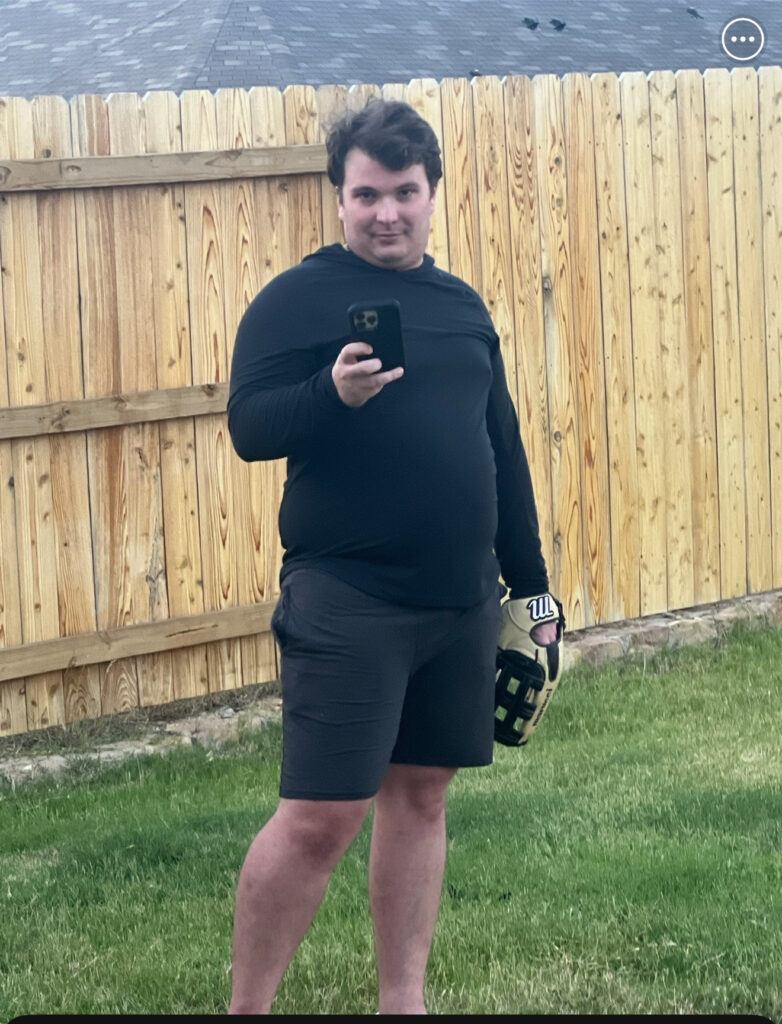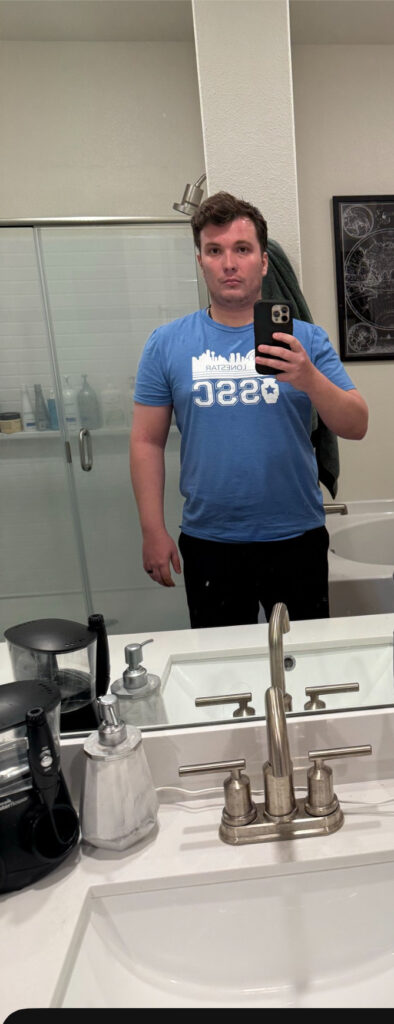Part Two
The inaugural season of MAN v FAT in North Texas is now complete, and the results are impressive.
Participants lost more than 600 pounds combined over the 14-week season, and many achieved their weight-loss goals in a program whose major objective is to help overweight and obese men become healthier.
Coach Anthony Williams said he was originally drawn to the program because he believes in the mission.
“This isn’t just about soccer— it’s about accountability, community, and giving guys a space where they don’t feel like they’re going through it alone,” Williams said. “There aren’t many programs that blend competition with purpose the way MAN v FAT does. I saw it as a way to bring my background in health coaching into a space where real-life change could happen. That’s on the scale, yes, but also in mindset, habits, and how guys show up for themselves and each other.”
According to an article from the journal Nature in 2024 entitled “Assessing the economic impact of obesity and overweight on employers: identifying opportunities to improve work force health and well being,” obese and overweight civilian workers contributed a combined $425.5 billion in economic burden to employers in 2023.
The cost included such factors as medical expenses associated with obesity, absenteeism, obesity-related disability payments and worker’s compensation payments.
For a hypothetical firm of 10,000 employees, this would translate to nearly $27 million in annual costs.
MAN v FAT decided to meet the problem head-on.
“For a lot of these men, this is the first time they’ve had structure, accountability, and community all working together in their corner,” Williams said. “That alone is a game-changer. Most weight loss attempts are solo, and that isolation is a big reason why they don’t stick. But here, they’re part of something. They’re showing up not just for themselves, but for a team. And once that mindset shift clicks, everything else starts to follow.”
Physically, Williams said it is nice seeing the pounds come off, but said the “deeper win” is that many of them are learning to self-correct instead of self-destruction.
“They’re tracking their food, weighing in weekly, owning the slip-ups, and not bailing when things get hard,” Williams said. “It’s in that steady, imperfect consistency where the real change starts to take hold—not just in weight loss, but in how they carry themselves, how they lead their families, and how they make decisions in and outside the program.”
Cooper Weiss, 27, is the Director of Accounting for a Real Estate Development & Property Management Company, who participated in the inaugural season of MAN v FAT and hit his goal by losing more than 30 pounds. Weiss and his wife recently welcomed their first child into the world, and that is when “everything changed,” for him.
The Fort Worth man said he wanted to be the kind of father who could run around with his son, set a healthy example, and actually feel good in his own skin again, but he kept finding excuses not to go to the gym because he really had no accountability. Fortunately, that was when he initially learned about the program, and at first, he was skeptical. “One day, scrolling through social media, I came across MAN v FAT,” Weiss said. “Honestly, my first reaction was to laugh—it sounded like a scam— just a bunch of overweight guys playing soccer. But soccer has always been a huge part of my life, having played in college. After I tore my meniscus, I was just never able to get myself back out there or I was worried that I would disappoint my teammates by playing.


“I went to the intro night, met the team, and saw real success stories from guys just like me. We played a short game, and I immediately knew this was different. It wasn’t just about soccer—it was about accountability, brotherhood, and change. I started at my heaviest weight ever, 251 lbs. In just under three months, I’ve lost 32 lbs, and I feel like I’ve finally found my rhythm again.”
Weiss’ team, called “KFC Dallas”, would huddle together before every game and scream “Stay Cocky” at the top of their lungs. The Fort Worth man said that while it sounds funny, it contributed to the solidarity of purpose.
“The challenge is real,” Weiss said. “Your performance on the scale impacts not just you, but your whole team. You can’t hide from it. Some weeks a team wins on the field but loses on the scale, and that’s a reminder that this program is about so much more than soccer—it’s about becoming healthier together.”
Another participant, Dirk Nieman, 50, dropped from 356 pounds to 315 pounds during the inaugural season of MAN v FAT.
Also from Fort Worth and the Director of Facility Engineering at Baylor Scott and White in Trophy Club, Nieman had some advice for anyone considering signing up, but was reticent to do so.
“There is no reason to be nervous,” Nieman said. “Just get out here and get on a team and give it a shot. We are all playing hard, and it’s great when we win, but no one is getting kicked off— no one is going to not let you play, and there are no superstars. It’s just a bunch of old fat men trying to play a game, plain and simple, and when someone tries to make it more than that, they are shot down pretty quickly.”
For Williams, those factors are what made him want to be a part of the program and he is happy he did. “I first got involved with MAN v FAT after seeing a posting for a coach position,” Williams said. “I looked into the program and realized right away, it lined up with everything I believe in. Men need structure, real accountability, and a place where they’re not just trying to figure it all out alone. MAN v FAT offers all of that, but in a way that’s approachable and community-driven. It’s not just about weight loss; it’s about helping men rebuild confidence, ownership, and a connection to themselves.”






